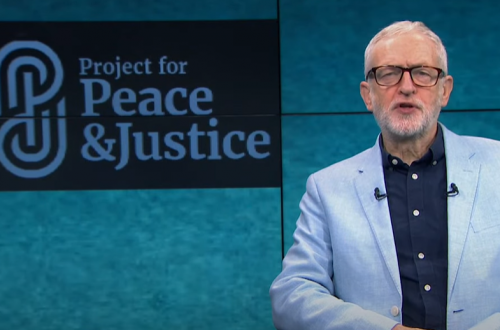This is a guest post by amie
During the Israel-Gaza war of July and August 2014 there was a significant and unacceptable increase in antisemitic incidents in the UK. The chair of the All-Party Parliamentary Group Against Antisemitism, John Mann MP, instigated a parliamentary inquiry into the lessons that could be learned from the upsurge of anti-Jewish violence emanating from the Middle East conflict and has now been published.
So reads the preamble to this Report.
I made a submission to the inquiry about something that has been disturbing me for some time. I first expressed my disquiet about the effect of the failure of some judges to recognise antisemitic tropes, some time ago, and somewhat more vehemently, on HP.
My submission impressed the Inquiry sufficiently for them to call on me for a supplementary submission.
I was gratified that the Report cited some of my submissions verbatim, including this all important one for me:
It was also suggested to us that in the case of Naik, R vs Secretary of State for the Home Department , that a failure to properly train the judiciary had allowed for some comments to be mis-attributed as political rather than antisemitic. Naik’s statements for example comparing Americans to pigs were considered to be unacceptable but Lord Justice Carnwath found that one statement in particular “though strongly expressed, may be thought within the bounds of legitimate political comment.” This judgement was supported by Lord Justice Gross. Naik had said: “Today, America is controlled by the Jews, whether it be the banks, whether it be the money, whether it be the power. Nobody can become a president of the USA without walking the Star of David.” Whilst we would not question the judge’s decision in this case, the language used to describe the vile antisemitic rhetoric is unfortunate. Although judgements must continue to be made based on the facts of a given case, it is important that some better background knowledge is disseminated.
To have it correctly and officially classified as “vile antisemitic rhetoric” rather than legitimate discourse laid to rest what had become a bit of an albatross for me, as I had been trying in vain over the years to get various legal journalists and pundits to pursue this.
Even more gratifyingly, this was incorporated into the report’s final recommendations, as recommendation 14:
We recommend that the Judicial College updates its Equal Treatment Bench Book to include basic reference to antisemitism and ensures it has in place an effective mechanisms for wide distribution and communication of the guide.
The Report makes important and valuable recommendations regarding many aspects of the phenomenon it set out to address, but there are also some serious flaws.
Firstly there is in my view far too much obsessing about countering antisemitic tweets and the like. As a free speech advocate, I am against specifically criminalising all nasty chatter across social media, unless it fall within the existing parameters of the law, and even within the existing parameters, the police hounding of minnows on twitter is focus and energy far better spent spotlighting the malign discourse in the mainstream media. This, BBCwatch and CifWatch (and now UKMediawatch) already do admirably, without need of police intervention. Mainstream media was mentioned in the Report in passing, but with no recommendations covering them.
More disturbing is that the Report appears still to be in thrall to the tarnished Interfaith Industry:
The Interfaith Network told us that it was concerned about the rise in both antisemitism and anti-Muslim hatred and whilst it is quite careful about the declarations it makes in relation to overseas events, it believed it necessary to issue exceptional statements in August..
So too, the Joseph Interfaith foundation issued an important statement on behalf of the National Council of Imams and Rabbis having released cross-communal statements in the recent past in relation to anti-Muslim hatred. The Three Faiths Forum also issued key statements as did the Board of Deputies of British Jews in partnership with the Muslim Council of Britain (MCB).
We wish to commend all of the organisations that issued statements, particularly those Muslim groups that stood in solidarity with the Jewish community. This has added resonance given the indications from victim feedback on the profiles of perpetrators, that a high proportion of cases involved someone from a Muslim background…
The interfaith work undertaken during the summer months was vitally important. In particular, work on training individuals and organisations in ‘handling difficult conversations’ is paramount.We recommend that the government look to support an extension of this work in particular to local authorities with a view to implementation of a national support structure, through local authorities, for intensified interfaith activity during periods of potential disharmony between communities.
This last paragraph was adopted as recommendation 18.
I wish I could hope that this recommendation is contingent on the review of best practice in interfaith work, which is recommendation 2, but unless there is some strong alternative input, the default will be to reach for the usual embraces with familiar parties:
2. The UK National, Scottish, Welsh and Local Authorities were keen to highlight their support for and the significance of inter-communal and interfaith work. Given the importance of keeping communities together when events elsewhere can serve to drive them apart we recommend that the UK Government together with the devolved administrations undertake a national review of this work, including and specifically identification of good practice and case studies of where dialogue has succeeded in spite of international events.
For a reminder of the disturbing connections of the Interfaith Network and the Joseph Foundation see the research in this document (in particular, pgs 11-14).
As for the joint BOD statement with the MCB, this reflects my views exactly.
Still ploughing the same muddy furrow, the Board of Deputies has issued this General Election Manifesto.
Under “Community Relations” the Manifesto declares:
The Jewish community is committed to positive and authentic engagement with people of all faiths and none. Promoting good relations between communities proactively prevents tensions, racism and violence… whilst much of this work is driven from faith groups themselves at a local and national level, only Government has the resources to facilitate the strategic growth and direction of this work.
The Jewish community and the Board of Deputies, in particular, prides itself on working with Government to enhance the interfaith encounter, producing joint research, projects and events. organisations and projects like the Inter Faith Network for the UK and its regional and local affiliates, as well as national bodies like.. the Joseph interfaith foundation offer sustainable mechanisms and partners to deliver a more cohesive and integrated society.
So, the APPGA and the BOD still see pouring more money from central government into these dubious faith groups as the panacea.
Even more disheartening are the blandly interchangeable video statements of all the heads of the main parties in this election, embracing the BOD manifesto.
All of this accentuates the wrongheadedness of this pandering to the IFN and MCB, at the expense of worthier figures from the diverse Muslim community, (not to mention at our expense as taxpayers) so poignantly and powerfully highlighted in this recent post.


